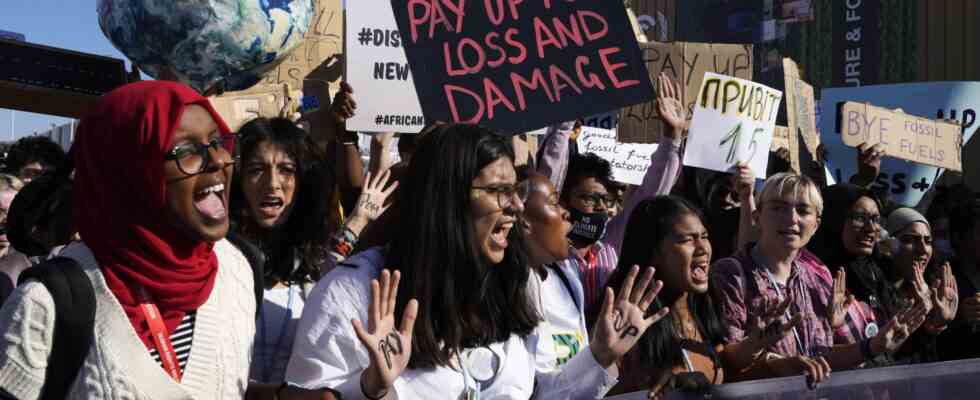Status: 11/18/2022 4:35 p.m
There is no end in sight at the world climate conference in Egypt. The participants are still arguing about saying goodbye to oil and gas. And the relief fund for climate damage is also causing displeasure.
The world climate conference in Egypt is going into overtime. The UN meeting will continue until Saturday, said conference president Samih Schukri – a few hours before the end that was actually planned. Some negotiating teams are even preparing for an extension until Sunday. “We have to shift up a gear again,” he demanded, referring to unresolved issues. In a first draft for a final declaration, climate protectors still saw many gaps.
In the morning, the Egyptian conference management presented the ten-page paper. It calls for a gradual phase-out of coal. However, the desire of a number of states and environmental activists to enshrine the farewell to oil and gas in it is not taken up. The representatives of around 200 countries are also struggling over whether, after years of debate, a fund to compensate for climate damage in poor countries should be established.
“Regression worse than no result”
Foreign Minister Annalena Baerbock made it clear that going backwards in climate protection would be unacceptable for the European Union. A result that weakens, waters down or even reverses the consensus of the Glasgow and Paris conferences would be worse than no result, said the Green politician. But none of the open questions are unsolvable. “It’s going to be an intense day, probably an intense night as well,” she said. Around 34,000 participants traveled to the two-week UN meeting COP27 in Sharm El-Sheikh. According to the climate portal “Carbon Brief”, none of these annual meetings has ended on time in the past 20 years.
Until recently, one of the contentious points was the issue of “damage and losses”, which made it onto the official agenda for the first time this year. It is about compensation payments to poor countries that did not cause climate change but suffer most from its consequences. These are, for example, small island states or African countries that have been suffering from drought for years. Industrialized countries and developing countries initially faced each other inexorably here.
Aid only for states that are trying to protect the climate
While developing countries insisted on a central fund that would give them access to funds in the event of damage, the industrialized countries favored a mix of existing and new measures, including insurance. “No money in the world could pay for the damage and losses of the future if we don’t have an ambitious reduction program now,” stressed Baerbock. Some countries are almost crushed by their debt. That is why we are also promoting solutions here.
The European Union made a compromise proposal late on Thursday evening, according to which the European states would agree to the required fund if, firstly, the money only goes to the most threatened states and, secondly, countries like China, in addition to the industrialized countries, also pay in money. Baerbock said: “The countries that really need it should benefit, not those that are only developing countries on paper.”
The background is that the United Nations Framework Convention on Climate Change of 1992 places China and Saudi Arabia on the level of developing countries. Western countries, however, do not see China as a recipient country because of its economic power and its role as the largest emitter of greenhouse gases.
Baerbock: “We haven’t done enough since 2015”
Negotiations on a joint work plan for faster CO2 reduction are also proving tough. The island states, the least developed countries, Latin American states, Indonesia and the EU are in favor of such a program, which runs until 2030 and in which there are annual reviews of the intermediate status. However, China, Saudi Arabia, India and Russia rejected new commitments. African states were divided on the issue.
Baerbock emphasized that new steps to reduce greenhouse gases are now particularly urgent. The EU’s proposals for further steps in reducing greenhouse gas emissions, with annual reporting obligations for the states, would primarily bind the industrialized countries themselves. “Because we know that since 2015, since Paris, we haven’t done enough to reduce it,” she said, referring to the Paris climate conference.

